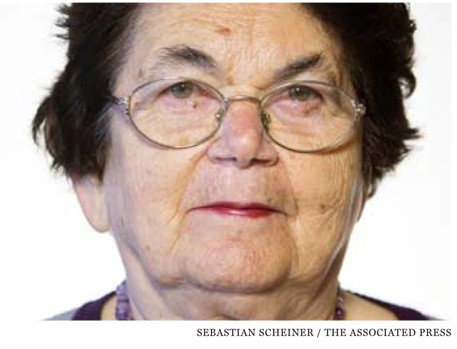

Ester Koffler Paul, 82 (Galicia, today Ukraine): Married, three children, nine grandchildren, three great-grandchildren. Retired homemaker.
When Ester Koffler Paul thinks back on her Holocaust ordeal, she mostly remembers her sister. Paul was 8, and her sister Nunia was 10 in 1941, when the Nazis invaded their hometown of Buchach in what is now Ukraine. Their mother died before the war and their father was taken by the Nazis and murdered along with 700 other Jewish men.
The girls were put under the care of their grandparents, who had returned from pre-state Israel because they missed the family. An uncle, who was an engineer, built an underground bunker below their home with a tunnel that led to a public garden.
When the Nazis came knocking on the door, her grandparents stayed behind so they could cover up and seal the escape hatch as the girls crawled away. "They sacrificed themselves," she said. "The Germans captured them and stopped looking."
For the next few years they were on the run together, sleeping in fields, subsisting on scraps of food non-Jews gave them from time to time. When the Russians took over their town they returned home, but it was soon recaptured by the Germans and once again they faced Nazi troops. This time they were caught on the street and handed over to the Gestapo.
"They asked me what my name was and I said 'Romka Vochick.' I had never heard that name before and where I came up with it I don't know. It was as if someone just landed on me and put the name in my head," she said, of the non-Jewish sounding name. "That is the name that saved me."
Her sister couldn't bring herself to lying, fearing that she would be found out and beaten. "She had an accent and was afraid," Paul said.
That decision cost her her life.
"I believe in fate," Paul said. "There was some kind of higher power that was at work. I don't know how to explain it. It happened, but it is hard to explain it all."